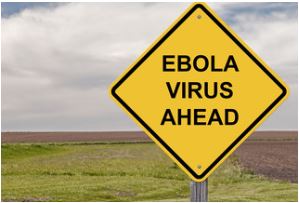People are still fighting against such a problem which is named Ebola epidemic
The Democratic Republic of Congo has disconnected communities in fear of fear and lack of communication has led some people to be helpless to help groups and even attack medical and even medical centers.

In the Democratic Republic of Congo last month, a young woman's family, who died from Ebola, dressed her body, made a make-up on her face and licked her in a car, so that she could be expected to be alive, so that she could be seen in the check posts To prevent the spread of disease, you can run through the medium.
It was dangerous: the corpses are highly contagious. But they wanted to bury him in another city besides her husband, who also died from Ebola. His desperate tricks failed According to a report of the country's Health Ministry, they were stopped at a checkpoint.
The family's flight and the obvious lack of understanding that bodily fluids spread the disease helps explain why this Ebola outbreak has become the second biggest cause of its seventh month.
There is no end in sight, despite the use of promising antiviral drugs and a vaccine, which were not widely available in the previous epidemic. Guinea, Liberia, and Sierra Leone suffered the most fatal outbreaks from 2014 to 2016 and 28,610 people got sick and 11,308 people died.
In August, an unrestricted outbreak began in the war-torn Northeast of the Democratic Republic of Congo. Up to now, 907 cases and 569 deaths have been attributed to diseases along the country's border with Rwanda, South Sudan and Uganda. There are decent roads and highly mobile populations in this area, experts said, so there is constant concern that this disease will spread to those countries.
More than 80,000 people have been vaccinated, and although there is a lack of difficult data, experts suspect that without the vaccine, the epidemic would have been very large.
But attempts to stamp the illness are failing in some areas because many people still do not understand Ebola, and that too because of the heavy measures by external organizations, local police and the army, the officials of the communities, aid groups and Doctors have separated, who has worked in the field. Fear of being confined to isolation units, people have avoided testing and treatment.
They do not want external intervention in the rituals surrounding death and burial.
Dr. Doctor Without Borders President Dr. Joan Liu said at a press conference in Geneva on Thursday, "Those who respond to Ebola are seen as enemies." "In the last month, there were more than 30 different incidents and attacks against elements of reaction."
"The existing environment can only be described as toxic," she said.
Some people in the area ask why the vaccine is being given to only a few people - including the contacts of health workers and patients - and not everyone, she said. Many people wonder why the out-of-aid has come for Ebola, but not for malaria, diarrhea or other general, debilitating diseases, which suffer many more people. Some have asked support workers to know where they were when the militia was killing the civilians.
In the northeast of the country where the epidemic has been widespread, along with more than 100 armed groups for decades, security forces have become a constant threat of violence on the population.
Due to the delay in the long-delayed elections in December that prevented residents from voting, the destruction of outsiders was increased in two areas, Beni and Butambo, it was believed that there was concern about the spread of Ebola. Many people thought that the government had used this disease to stop them from voting, and some of their anger started against outsiders who had attracted so much attention to Ebola.
Recent attacks on two treatment centers run by Doctors Without Borders prompted the group to stop them, and Dr. Liu brought a scorching and highly unusual self-assessment, in which his organization was included, which had diminished. He urged medical teams to treat Ebola's patients as "not as a human but as a masterpiece".
In order to fail to win the confidence of the people, he blamed the respondents, not the communities.
"They listen to constant advice to wash their hands, but nothing about the lack of soap and water," Dr. Liu said. "They see their relatives spraying with chlorine and wrapped in plastic bags, which are buried without ceremony, then they see their property burning."
In a piercing essay published on Thursday in The New England Journal of Medicine, another doctor of Doctors Without Borders, Dr. Vinh-Kim Nguyen wrote: "In the early period of the epidemic, we saw armed agents to forcibly take patients for treatment. Already in the stricken population with severe reactions for violence and many crises, Unbelief, which inspires patients to flee and incite violence. "
Dr. Nguyen also noted that when Ebola teams were with the security forces, they met with fear and disbelief, especially for forcible immunization. But when security forces were absent, people would actually ask for immunization.
"Lessons are clear: guns and public health do not mix," he wrote.
Dr. Liu said that aid groups need to help in accepting the community, even if it means helping the families to take care of Ebola patients at home, or to bury them on their own. Provide information and equipment.
The key to preventing previous epidemics was to separate the sick people and to track everyone, who could have been exposed until there were more new cases. But that approach is not being successful in the Congo.


